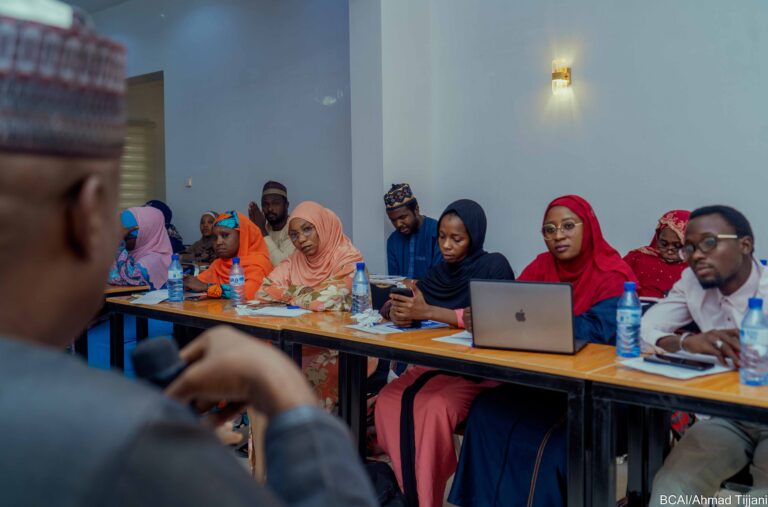Stakeholders in Kano State have renewed calls for urgent and strategic interventions to address cultural, socio-economic, and infrastructural barriers hindering girls’ education—particularly in underserved communities.
Speaking at a legislative dialogue on Gender Responsive Education Budgeting (GREB) on Monday, Hajiya Amina Kassim, the Coordinator of Girls Education at the state ministry of education stressed the need for community involvement, policy commitment, and improved funding.
The legislative dialogue organised by Bridge Connect Africa Initiatives was part of the Bridging Access to Girls’ Education (BAGE) project supported by the Malala Foundation.
Hajiya Kassim said many girls still drop out after primary school, especially in remote areas. “We discovered that in some communities, once girls complete primary school, they rarely transition to secondary level. That’s a serious gap,” she said.
READ ALSO:Bridging Gender Gap: Urgent Need for GRESP In Kano’s Science And Technical Education
To combat this, the coordinator said the Ministry plans to conduct community dialogues and mass sensitization campaigns, targeting traditional rulers, religious leaders, and political stakeholders.
She noted that the Commissioner of Education has given direct approval to engage specific communities and has vowed to support the process until a “success story” is achieved.
A major concern raised was poor access to secondary schools—often located several kilometers away. Distance and safety concerns in such location discourage parents from allowing their daughters to continue schooling.
As a remedy, experts at the event recommended strengthening boarding school infrastructure, a move the state government is already acting on.
“Billions of Naira has been invested in refurbishing these schools, and they are expected to reopen soon,” Hajiya Kassim added.
However, some participants also criticized the decline in annual budget allocations to the Agency for Mass Education, describing it as counterproductive to the state’s educational goals. Conversely, some budget experts challenged this view, attributing the issue to a lack of experience in budget coding.
READ ALSO: 21 Abducted Chibok Girls Returned With 34 Children, Trauma Killed 48 Of Their Parents – Report
A representative of the Kano State House of Assembly called for the establishment of a dedicated Agency for the Girl Child, similar to what exists in Sokoto State. “We must institutionalize our efforts to protect and empower the girl child through education,” he said.
Other contributors urged greater financial transparency and called on officials to intentionally prioritize education spending. “Interestingly, the little money flowing into the private sector is yielding results—unlike in the public sector,” one of the participants noted.
Highlights of the program included discussion on progress and challenges in the release and effective utilization of allocated funds for girls education in Kano State.
The participants also deliberated on strategies to make the GREB framework for Kano State as a legislative tool.
The event provided a platform for round-table discussions aimed at tackling challenges and generating workable solutions to improve girls’ education access across the state

